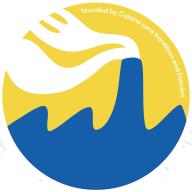General information
We are seeking a dedicated and passionate intern to join our team in the development of a sustainable art space. As an intern in this role, you will have the opportunity to work in a dynamic and challenging environment that involves both construction and artistic aspects. Your role will be crucial in ensuring the space is designed, built, and operated with sustainability and environmental consciousness in mind.
Responsibilities:
1. Sustainable Material Research: Conduct research on sustainable building materials and practices, with a focus on utilizing recycled or reclaimed materials. Explore innovative solutions for incorporating eco-friendly materials into the construction and design of the art space.
2. Construction and Design Assistance: Collaborate with architects, designers, and construction teams to assist in the development of the art space. This may include providing input on sustainable design elements, assisting with material sourcing, and contributing to the overall aesthetic vision.
3. Reuse and Repurposing Initiatives: Identify opportunities for reusing and repurposing materials within the art space. Develop creative strategies to incorporate salvaged or upcycled items into the design, decor, and functional elements of the space.
4. Sustainable Operations: Work with the team to establish sustainable practices and policies for the ongoing operation of the art space. This may involve implementing recycling programs, reducing energy consumption, and promoting environmentally conscious behaviors within the space.
5. Documentation and Reporting: Maintain accurate records of sustainability initiatives, material sourcing, and construction progress. Assist in creating reports and presentations to showcase the sustainable aspects of the art space to stakeholders and the public.
6. Collaborative Partnerships: Build relationships with local suppliers, artisans, and organizations that specialize in sustainable materials and practices. Explore opportunities for collaborations and partnerships that align with the mission of the art space.
7. Communication and Education: Assist in educating the community and visitors about the sustainable practices and materials used in the art space. Contribute to educational materials, signage, and guided tours that highlight the sustainability features of the space.
8. Project Management Support: Provide general project management support to ensure the timely and successful completion of the sustainable art space. This may include assisting with budget tracking, coordinating logistics, and helping to organize meetings and events.
Note: This internship opportunity is open to students or recent graduates, preferably with a background in architecture, design, sustainability, or a related field. Grant holders (e.g., Erasmus+) or those completing the internship as part of their studies will be given priority consideration.


